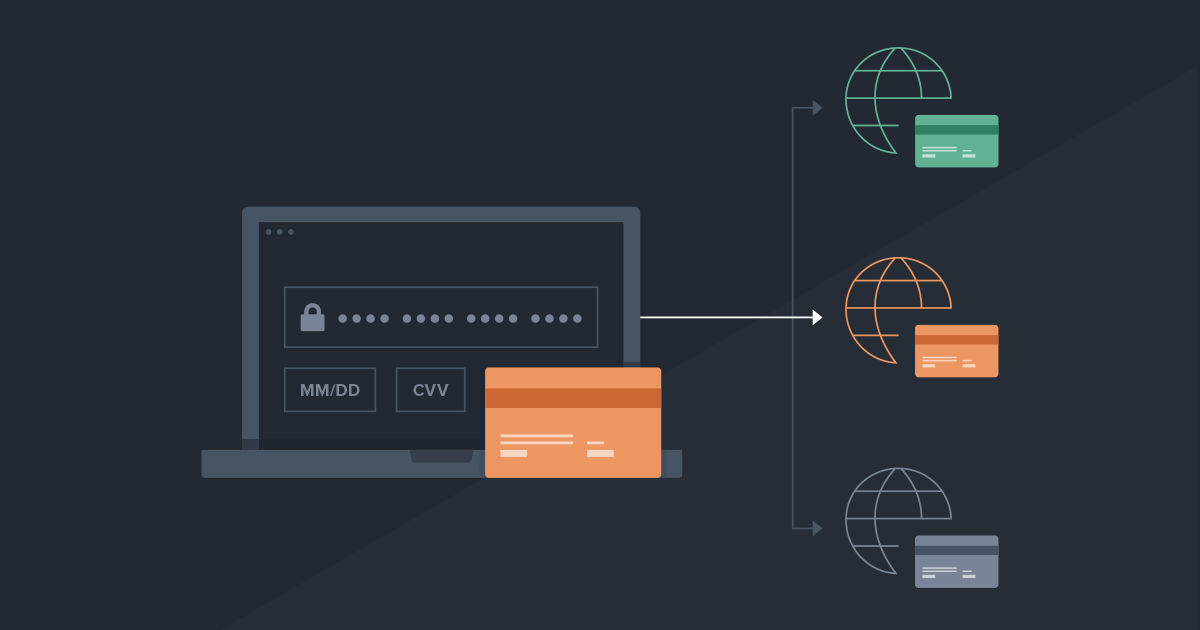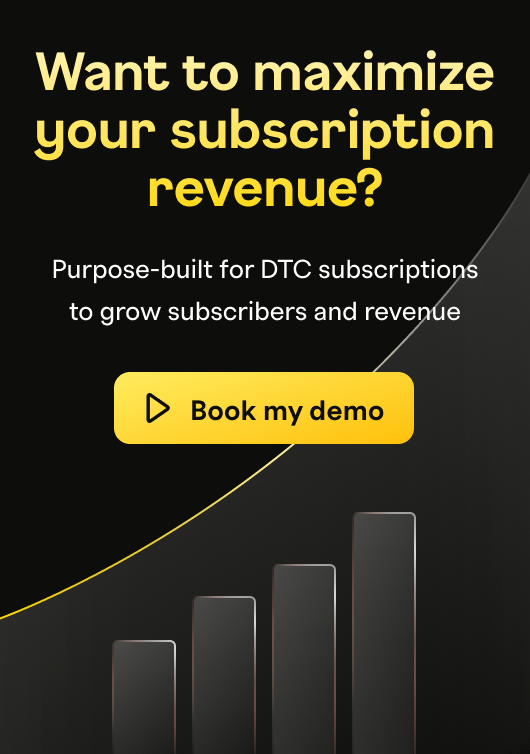15 critical questions to ask when evaluating a payment gateway

Besides a billing and management platform, subscription businesses also need a payment processor to handle their recurring payments—that critical link in the chain that delivers revenue to the business.
Understanding the factors that are most important to your business and knowing how a gateway–or two–can meet those requirements will help you choose well and set you up for success, both today and in the future.
Here are some of the major criteria subscription businesses need to consider when choosing a credit card processing service:
1. Does the gateway support the countries and currencies where you do business?
Some gateways only support transactions in certain countries or transactions in certain currencies, limiting e-commerce opportunities. Be sure to choose a gateway that supports the countries and currencies where you expect to do business.
Global businesses in particular may want to consider using multiple gateways which allows them to route transactions based on their geo-location. Having a second gateway also lets you conduct A/B split tests to determine which has higher acceptance rates based on key criteria relevant to your business.
2. What can a you expect in terms of the onboarding experience?
Not all gateways are created equally. Some of the things you should inquire about when considering a gateway are:
How quickly are they able to onboard new customers? Ask them how many days on average it takes to go live and what’s involved in setting up a new merchant account.
What kind of self-serve tools do they provide, and what capabilities do those tools have? Great customer service is a must-have, but the ability to self-serve can be a huge plus. Find out what self-serve options they offer to answer simple questions or get basic information.
Do they have relationships with the appropriate banks? Most businesses have an existing relationship with a bank and prefer to maintain this relationship. If at some point you want to switch payment processors or expand your business to new countries, you should determine whether the gateway supports your current banking relationship.
3. How reputable is the provider and how reliable is their service? What kind of SLAs do they offer?
If your payment gateway has an outage, it can’t process transactions and you may lose customers. You should have a clear understanding of the gateway’s system reliability, SLAs, and how well they’re equipped and prepared to address service interruptions so that they can resume processing payments as quickly as possible.
4. What does their service cost? What additional fees do they impose? What are their terms of service and other contractual requirements?
Price is obviously a consideration in any business relationship, balanced by quality of service. Fees are another important consideration in picking the right gateways and payment processors. Each will have different fee structures which can include monthly fees, fixed fees per transaction, variable fees based on the transaction amount, and extra fees for things like chargebacks, international payments and currency conversions.
Whether you’re considering operating with one or multiple gateways, you should get a quote from several gateways to determine estimated costs based on the gateway’s fees relative to your business.
5. Will you be able to switch providers smoothly?
In the event of a change in requirements, how easy is it to switch to a different gateway? Business requirements, gateway policies, the payment processing ecosystem, and even your customers’ preferences are all subject to change. In the event your gateway can’t keep up with your business needs, are you able to switch providers without impacting your ability to bill and collect revenues?
6. What are the integration options?
Any payment gateway that a subscription business chooses will need to be integrated with their checkout pages and billing system. There are a variety of different technologies that support this integration. You should make sure that the integration technology you prefer is one that the payment gateway you’re considering can support.
7. Does the payment gateway support new payment methods?
The world of payments is fast-moving, particularly recently, with new payment methods continually coming to the fore. When selecting a payment gateway, you should consider if the gateway supports all the payment methods you need.
Recurly customers, for example, can reach customers worldwide with a wide variety of over 20 gateways to process payments in 140 currencies.
8. How granular is their error fidelity?
Error fidelity refers to how detailed and how precise transaction decline messages are. There are over 100 different and very specific reasons for why a transaction might be declined. But some payment gateways don’t provide this level of detail and instead only specify a dozen or so error types.
Granular error fidelity is critical for a subscription business because the likelihood of successful payment collection can be drastically improved by customizing the collection attempts based on the exact decline reason. So, the more detailed a payment gateway is in terms of identifying why a transaction was declined, the more effective a billing system can be in terms of how best to address the decline and rectify it.
9. How good is their customer support?
When dealing with credit cards and other types of payments, issues will invariably arise, both on the business’ side and on the gateway’s side. Major issues that prevent payments from going through can stop a business dead in its tracks and necessitate the immediate involvement of the gateway to provide a rapid remedy so that payments can be collected again.
Other kinds of issues can cause significant disruption such as unusually high transaction decline rates, problems with issuing refunds, duplicate transactions being created, etc. These issues can have a significant negative impact, requiring customer support and operations teams to scramble. Most importantly, gateway and payment problems affect customers who may be unsatisfied and frustrated.
When dealing with payment issues, a gateway’s customer support team usually plays a key role in identifying and resolving issues. It’s important to understand how the team will work with you to solve problems, how accessible and responsive they are, and what policies they have in place. When considering a gateway, some things to determine are:
What kinds of support does the gateway offer? For example, do they offer phone support or at least chat function? Or are they only reached via email? Being able to reach a gateway’s support team quickly and easily has a direct impact on how quickly issues can be resolved.
How quickly will the gateway’s customer support team respond? Waiting to get an email response is unacceptable when your payments are failing. Many gateways provide formal SLAs to delineate their required response times, which is an important thing to know.
What options are there for tracking the status of an open issue? Similar to the above, having an easy way to find out the status of an issue eliminates delays and frustration. Also, what are the escalation options if an issue isn’t resolved in a timely or satisfactory manner? If a gateway has problems resolving an issue, having appropriate levels of escalation can be critical.
10. How well can they support your growth?
In addition to how a gateway responds to specific issues, it’s helpful to know what other kinds of guidance they may offer in regards to things like expanding into new countries, accepting new types of payment methods, and other payment issues or opportunities of importance. These ventures can be important for a subscription business’ growth, and a gateway that can provide expertise and experience in these areas can be invaluable.
Also, with growth will likely come increases to processing volume. If you expect huge increases to your volume, it’s good to know how this might impact your fees and if the gateway offers different fee structures (discounts) for higher volumes.
Determining your business’ future needs and growth potential provides an opportunity to consider if adding a second gateway would be beneficial. As mentioned, having multiple gateway gives you the ability to route transactions based on geolocation, product lines, and more. It also speeds financial reconciliation, lets you optimize for retries, and mitigate certain kinds of risk, ultimately providing potentially critical flexibility that will support your business’ expansion.
11. What is their expertise in fraud management?
Fraudsters are relentless and highly-motivated, stealing from businesses at every opportunity and ever-evolving in their methods of attack. Fighting fraud is a constant challenge and requires a sophisticated, multi-pronged approach. A gateway can and should be your ally. Some questions to ask the gateway:
What tools are provided to identify and prevent fraud? These may be third-party or in-house tools.
Does the gateway provide benchmarks for industry, company size, company type, etc.? This data lets you gauge your own incidence of fraud against similar companies to know if your fraud levels should be of concern.
How closely will they work with you to implement best practices for preventing fraud? Again, payment fraud is such a critical issue in CNP transactions, the more assistance and expertise a gateway can provide, the more valuable their service will be to you.
To protect your business from suspicious activity, you’ll need customizable fraud-fighting capabilities. Recurly customers leverage Kount’s next-generation artificial intelligence scoring and business intelligence tool to perform in-depth analysis–all within the Recurly platform.
12. How advanced is their reporting & reconciliation?
Subscription businesses depend upon information from multiple sources including external parties like payment gateways, banks, and credit card companies for revenue recognition and other financial reporting purposes. Understanding how this information is provided is critical. Some businesses will rely on reports from payment gateways, while others rely upon specialized internal staff who prepare reports using raw data from the gateway.
Some key questions around reporting practices include:
What reports does the gateway provide—standard vs. optional vs. custom? Are there additional fees or other considerations for creating or receiving non-standard or custom reports? If you know you need more advanced reporting tools, you should ensure any gateway chosen can provide them and at what cost.
How are the reports accessed? Via download or on-demand? And how often may they be obtained? If reports are difficult to obtain, your reporting processes will be affected.
Are there tools to search and find items, for example, duplicate or missing transactions? Straightforward methods for finding data improve the reconciliation process.
13. What do they offer in terms of credit card portability?
Occasionally, a business may want or need to switch to a different gateway. In this case, a gateway’s credit card data portability processes and policies will become extremely important.
Find out what tools or support they provide to import and export customer and credit card information. You should also determine if there are fees involved in this process and how long the process will take.
Whenever a business decides to change gateways, they’ll need to export their credit card data from their old gateway. Because this information is so sensitive, payment gateways can be resistant to exporting the data. Even when this process is agreed to, it can take months to schedule and cost several thousand dollars in professional services fees. As well, the business will lose access to their legacy data and all their subscriber data will need to be reconfigured.
Recurly customers don’t need to worry about the portability of their credit and debit card data. You can change payment gateways with ease as you needs grow or change. It’s as simple as providing the new gateway credentials and checking a box to switch the flow of transactions from one gateway to another.
14. Can the gateway help with tax compliance?
Tax compliance is another broad area of compliance. As we all know, federal and state tax rules and regulations can be very complicated and can differ by jurisdiction. International sales and use taxes along with VAT and GST taxes may also apply. Be sure to choose a payment gateway that’s familiar with the tax codes in all the areas in which you plan to do business.
15. How does a payment gateway work with Recurly?
There are three popular options:
Recurly customers can host their own payment form, with payment information sent to their own servers. The payment information is then sent to Recurly via our API. This is the easiest option in terms of collecting payment information, but the most difficult when staying PCI compliant. Unless you’re prepared to expend the time and resources to meet those very strict standards for PCI compliance, this option is not the best choice.
Payment form redirect. This option lets you take payment information by redirecting your customers to a payment page hosted by Recurly. This is a far more secure option, although the page or form may not be fully customizable.
Payment form on your site that sends payment information directly to a secure payment gateway. With this option, your servers aren’t actually receiving any sensitive financial information as it’s being submitted directly to the payment gateway. Not only are PCI compliance requirements minimized, you’re able to control the checkout experience. Recurly offers this option through Recurly.js.
Looking for a subscriptions payment partner?
Choosing a payment gateway is just one of the many key business decisions a subscription business must make. Understanding what's most important to your business and knowing how a gateway–or two–can meet those requirements help you choose right.
Check out our guide, Technology transformation: How to scale subscriptions, to learn the key considerations and advantages of a packaged solution instead of building one in-house.


